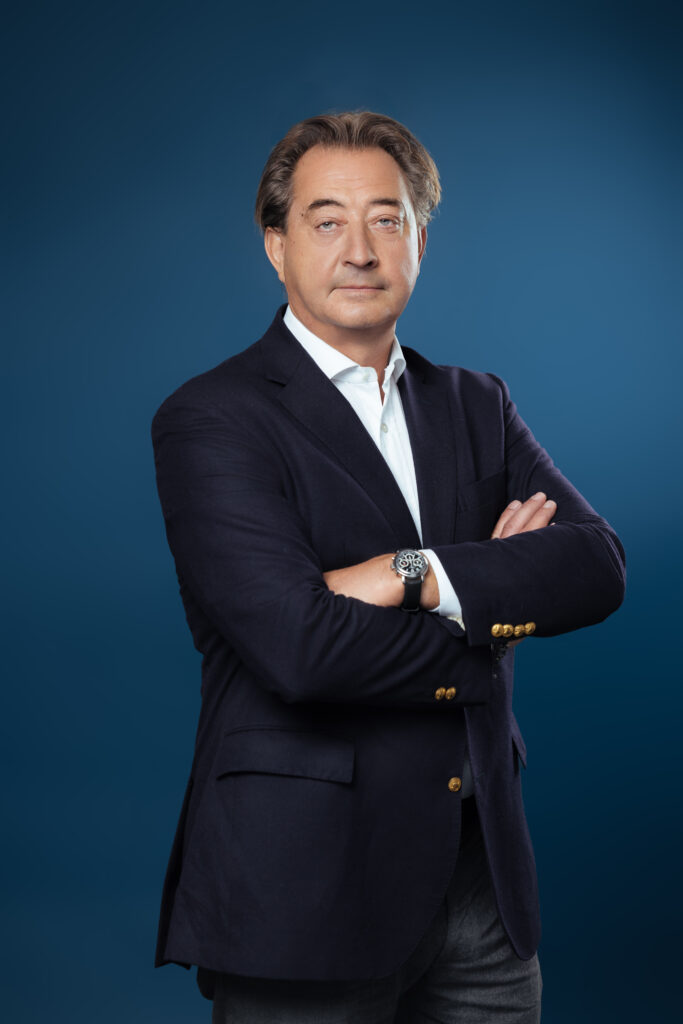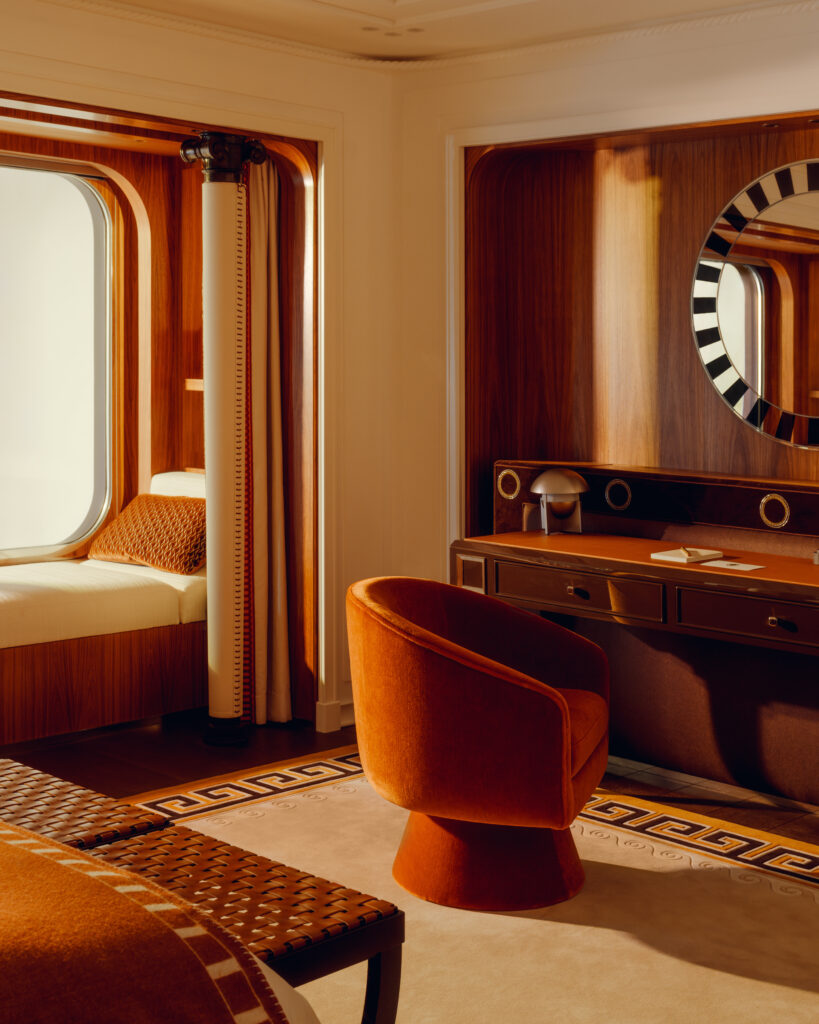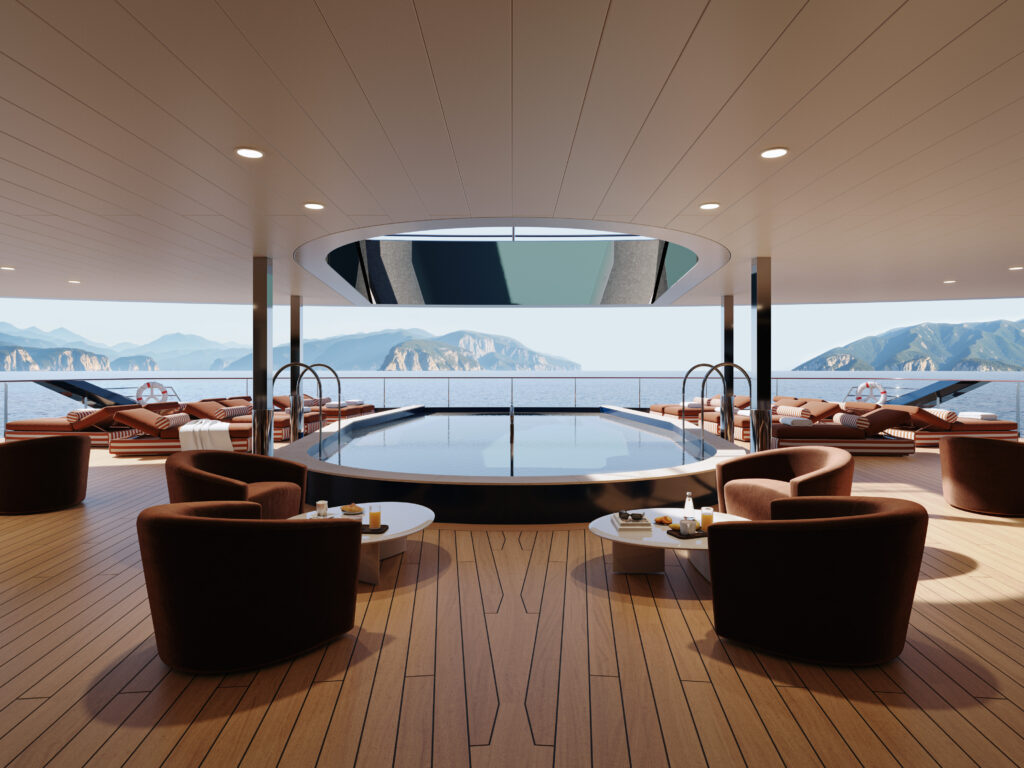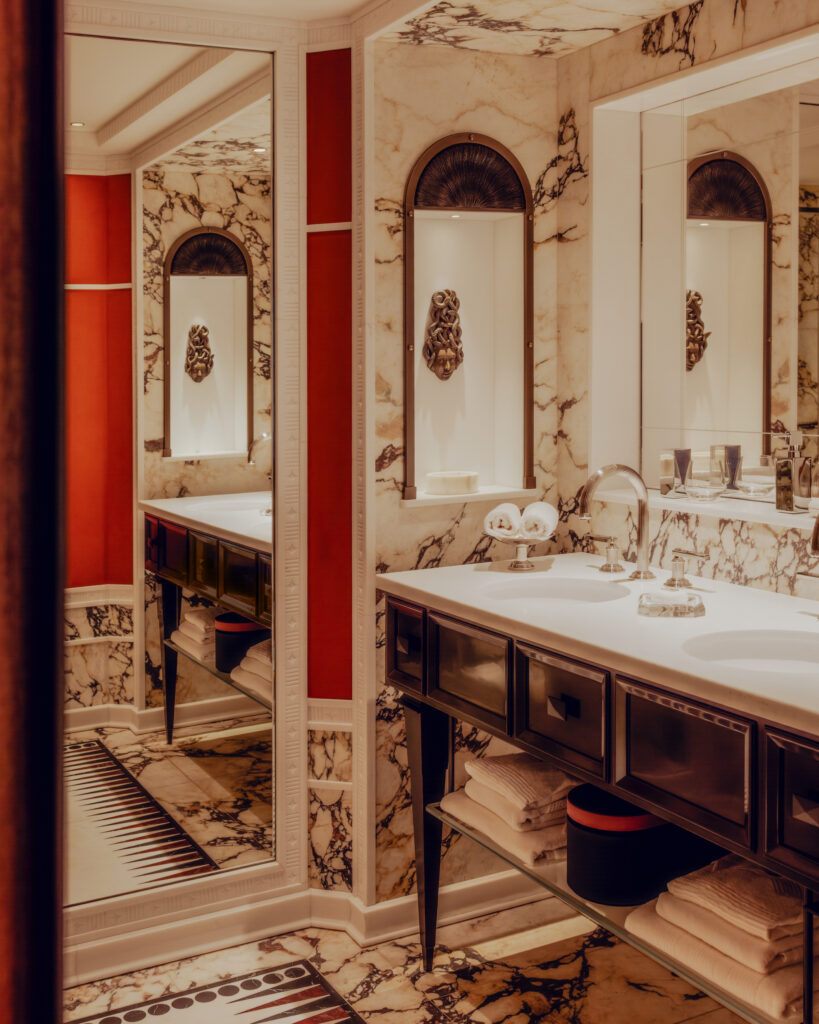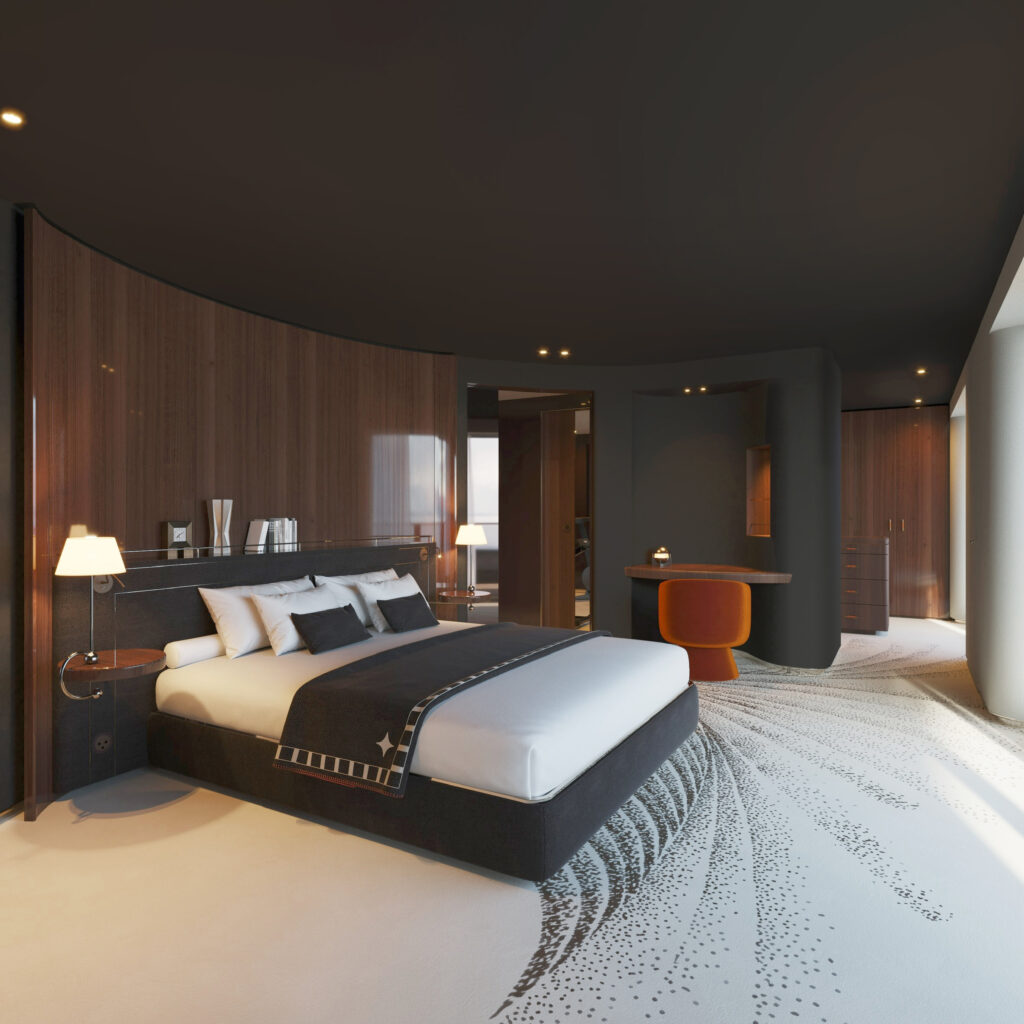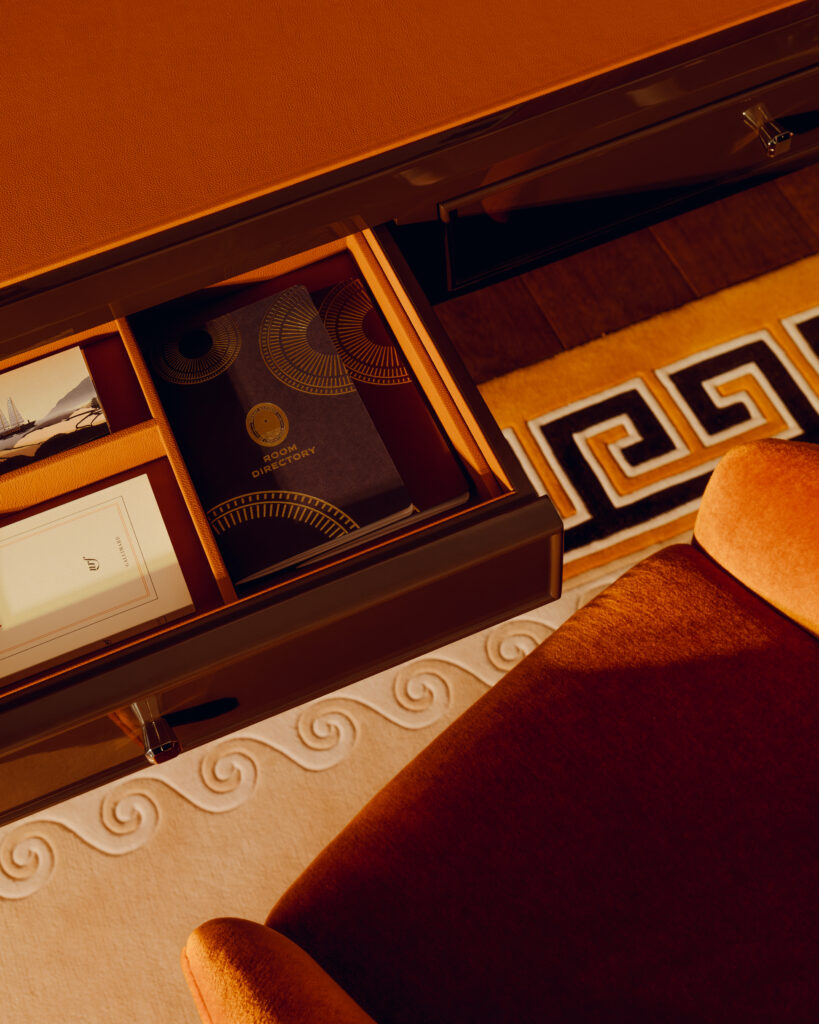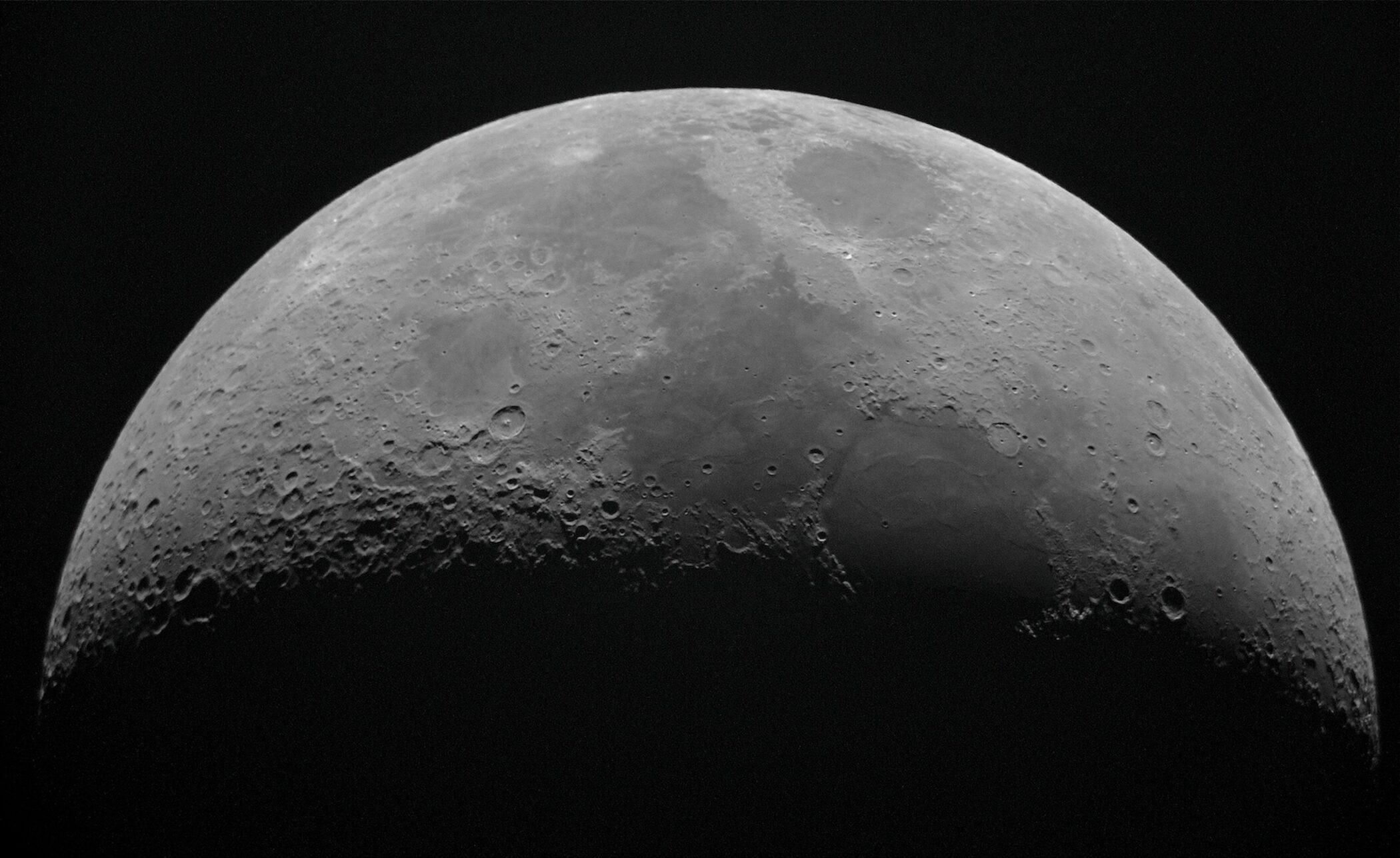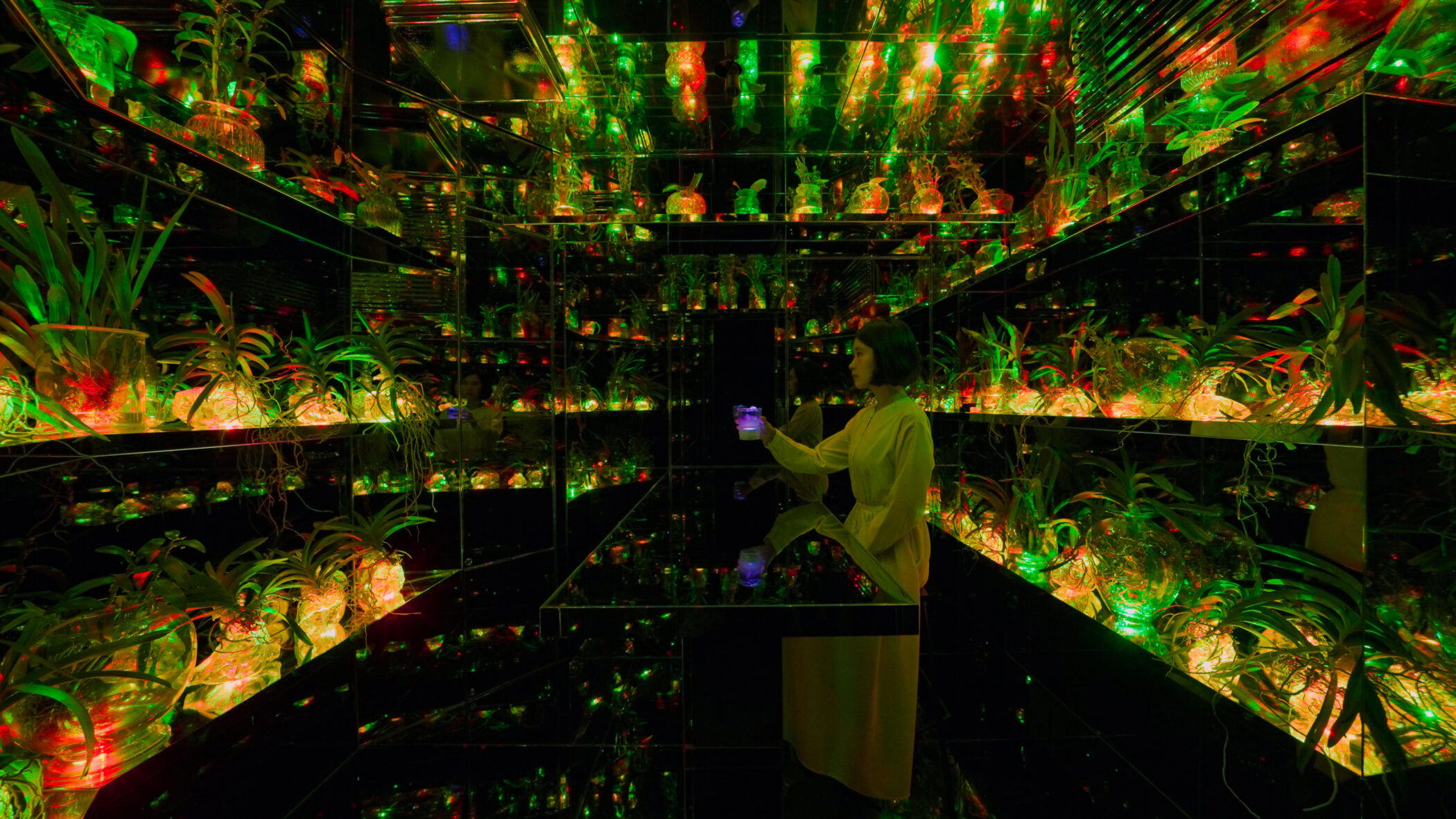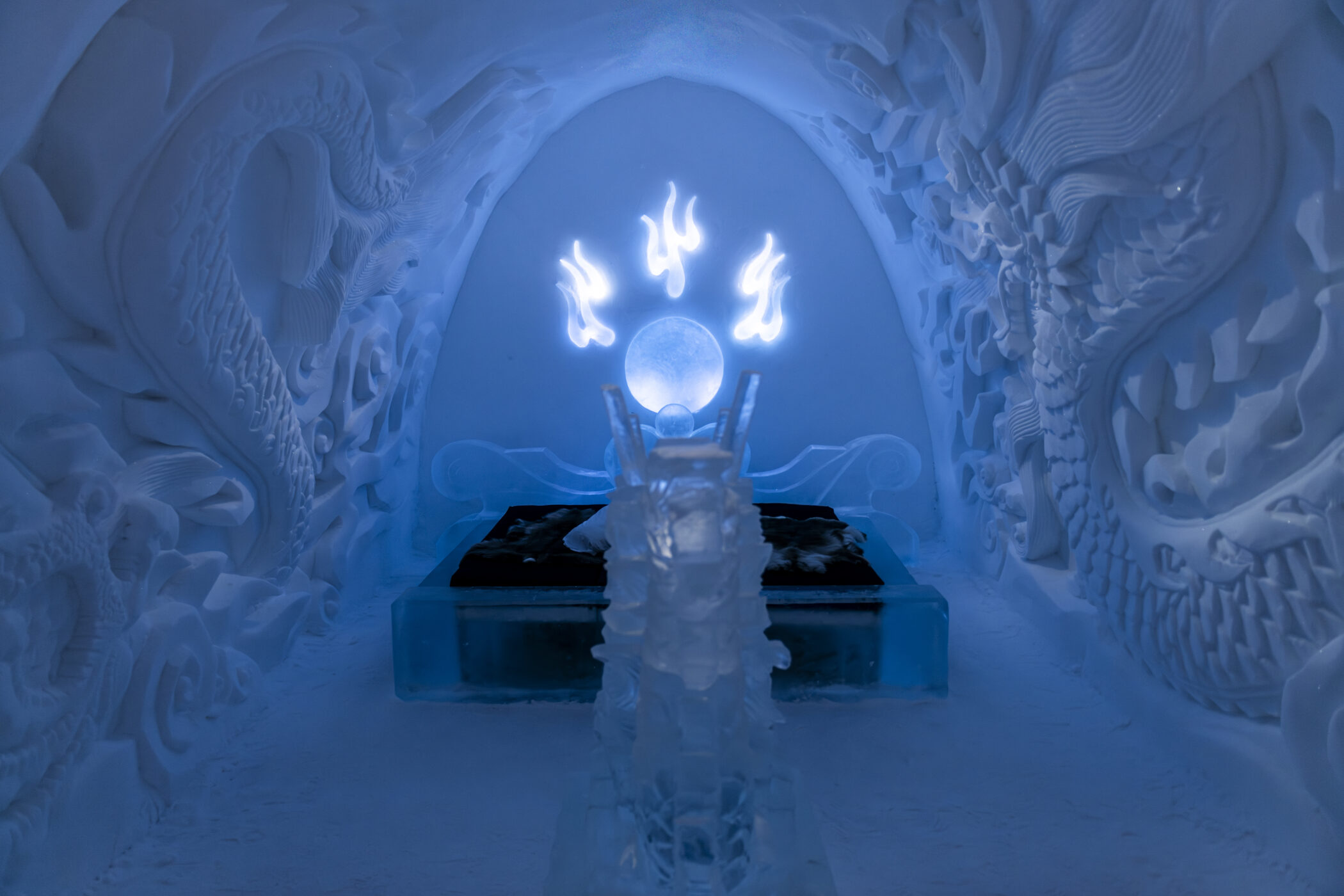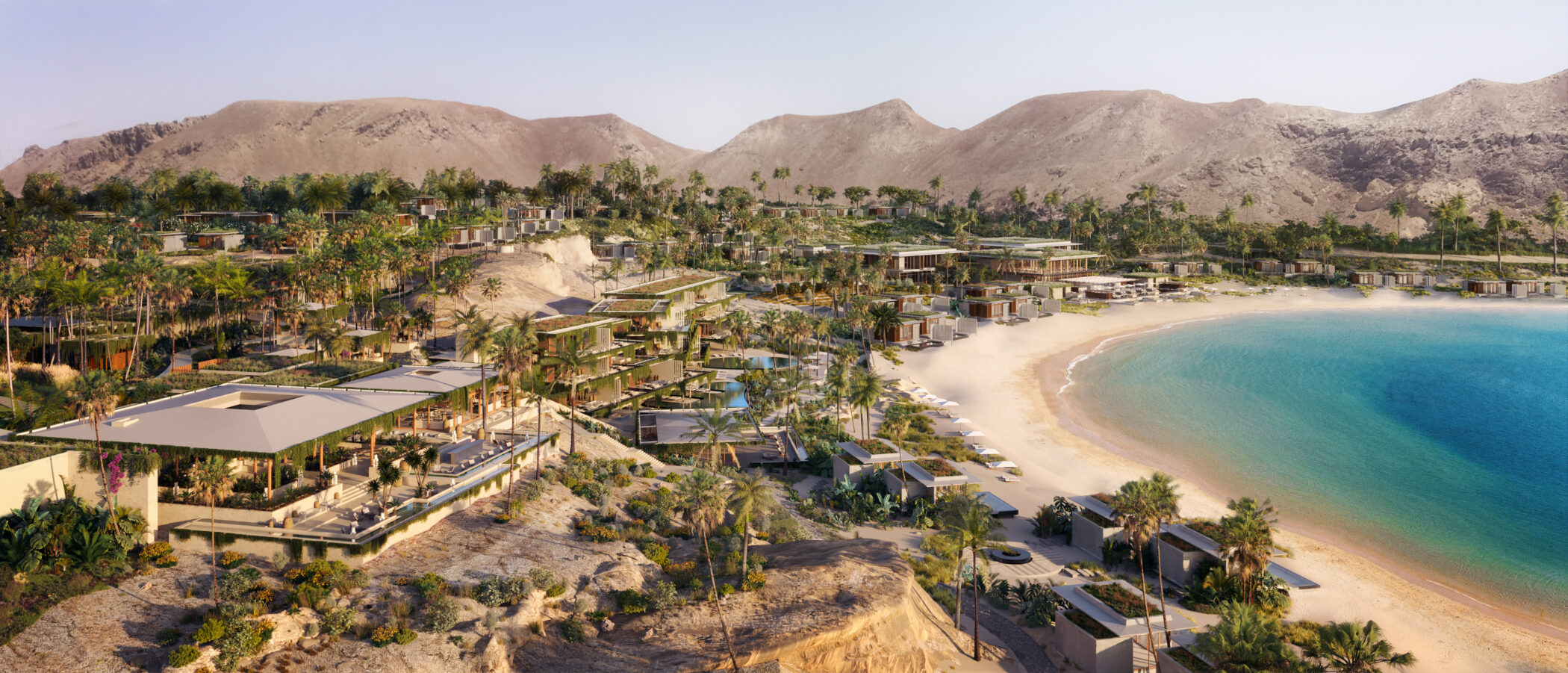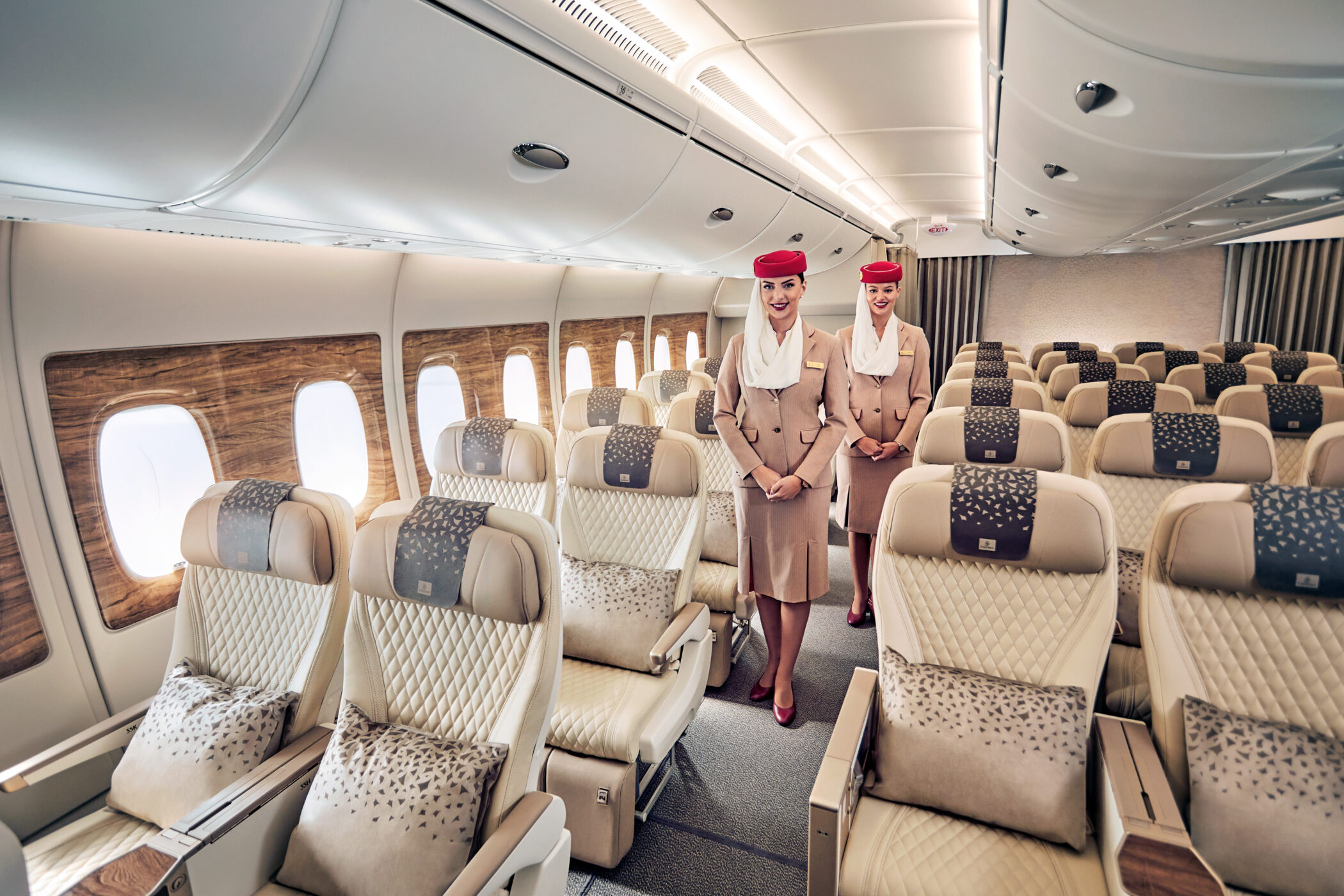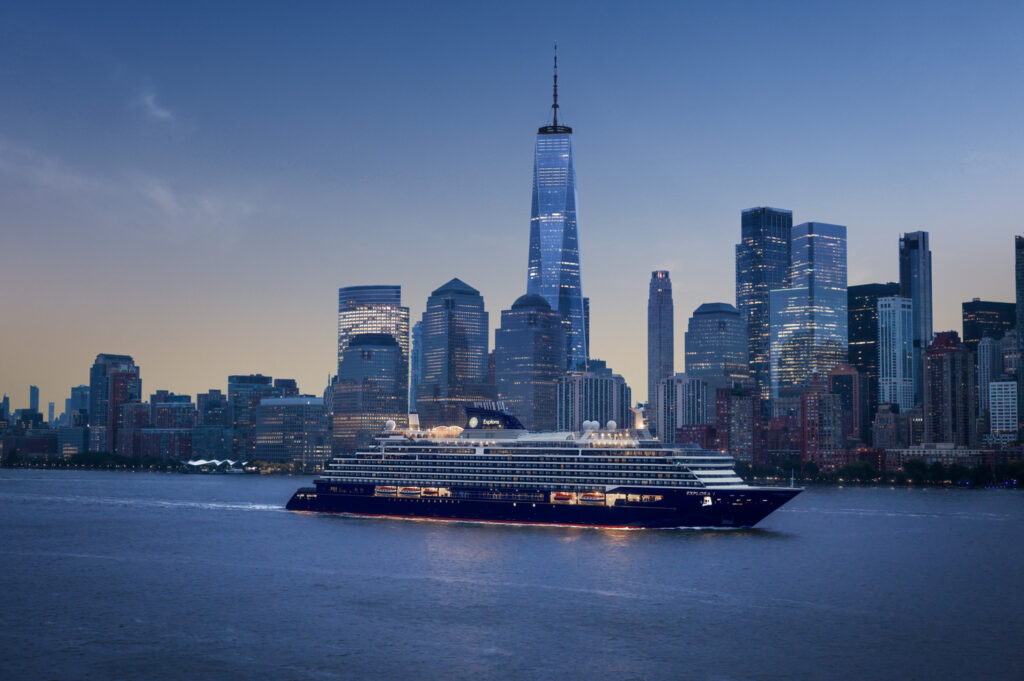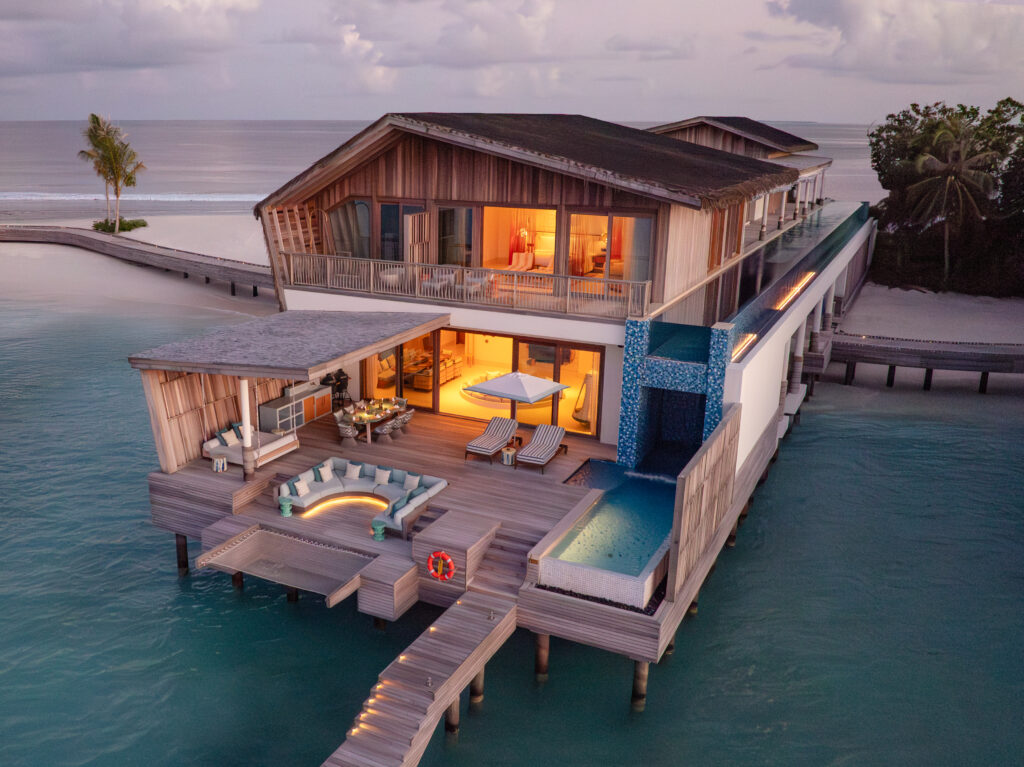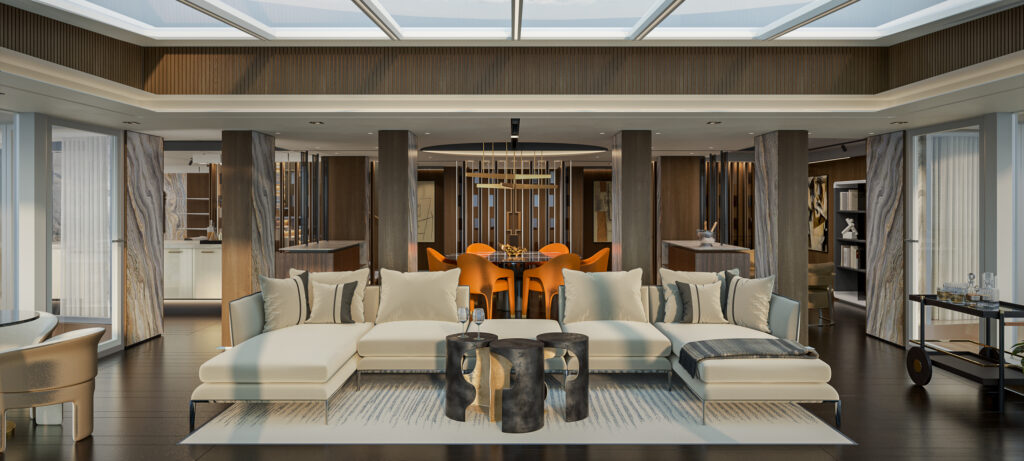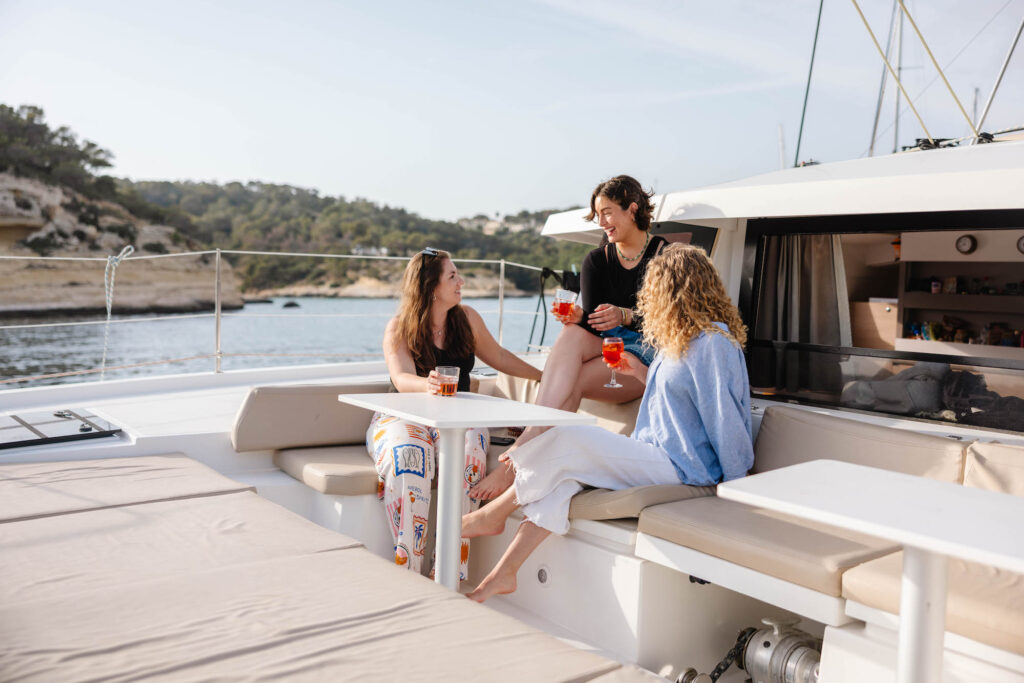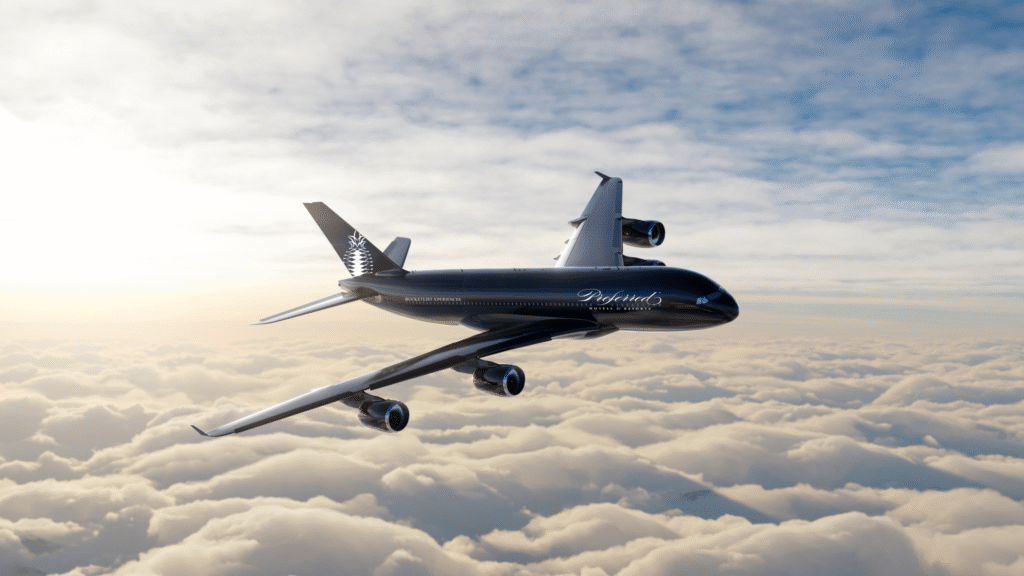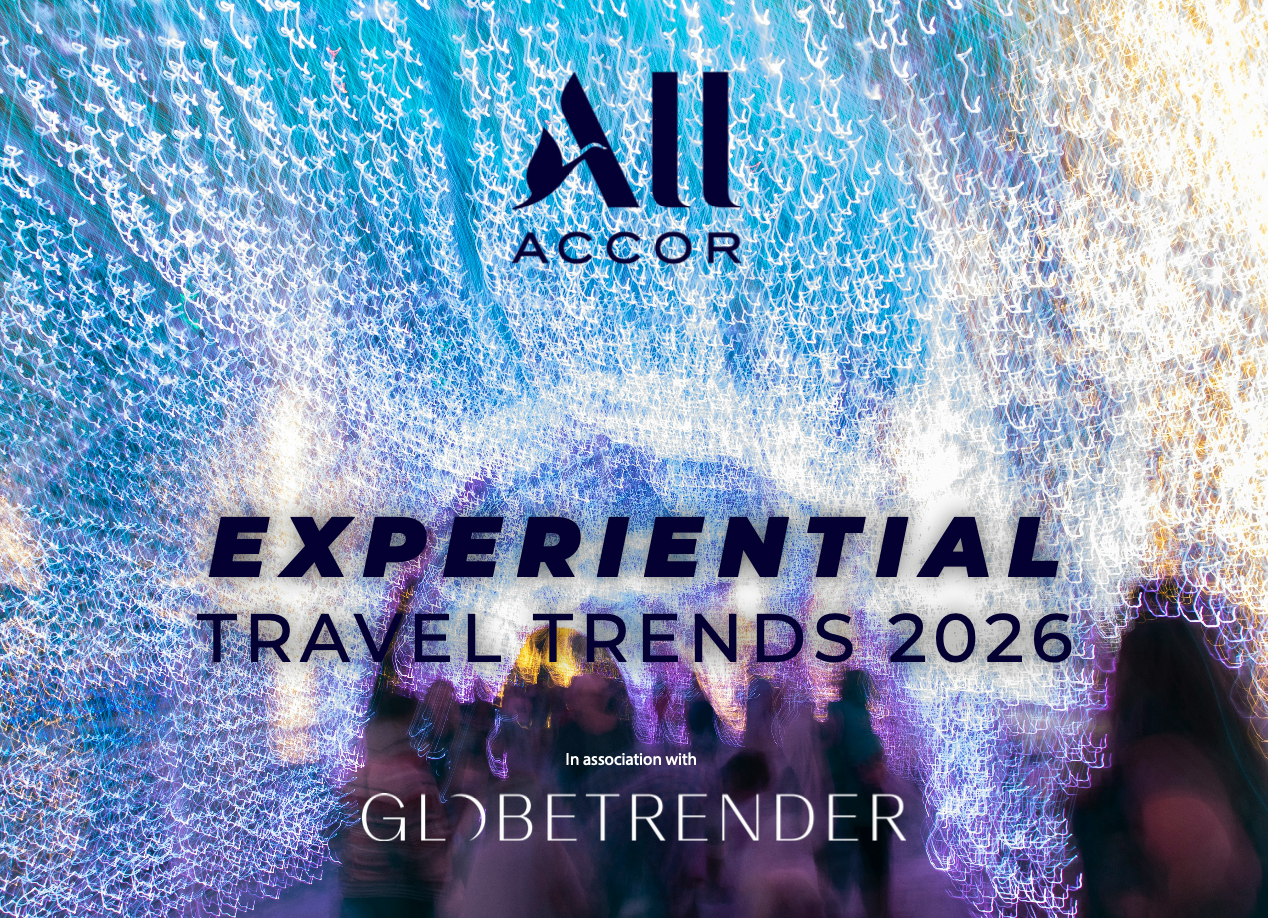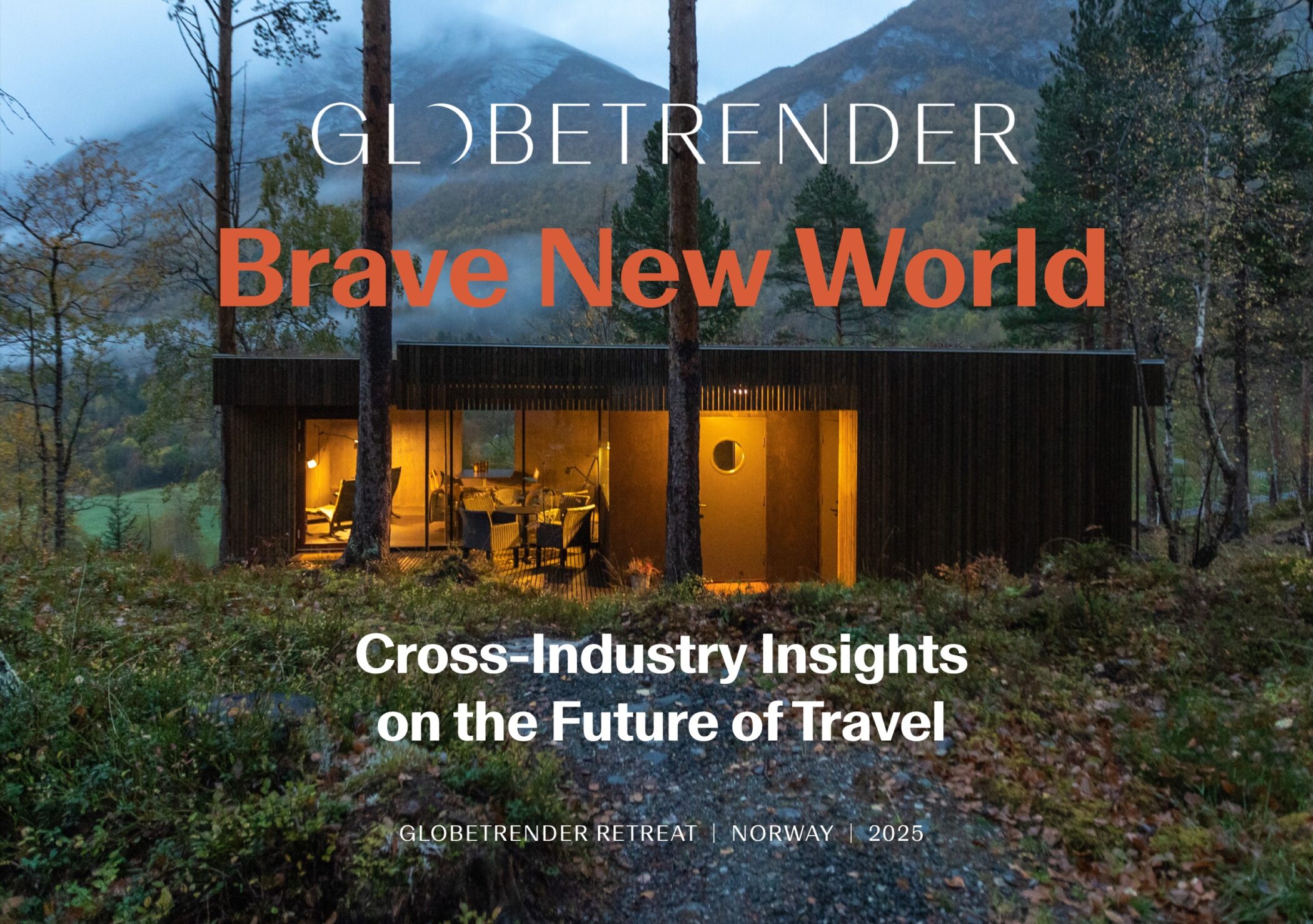CEO of Orient Express Sailing Yacht on the brand’s ocean venture
VOLT Trend: FLOATING HOTELS
From a Taylor Swift-ready recording studio to ‘press-for-butler’ buttons, Globetrender speaks to CEO of Orient Express Sailing Yacht Philippe Brault on the brand’s fresh ocean venture. Robbie Hodges reports
It might have an illustrious literary history but the Orient Express brand continues to captivate audiences. Whose social media feeds haven’t been graced with UGC videos of its Dolce Vita train coursing through the russet folds of rural Italy this summer? Come June 2026, a new stream of ultra-luxurious armchair tourism will ensue as the brand’s first ship, Orient Express Corinthian, glides into motion on a maiden voyage through the French and Italian rivieras.
It comes at a pivotal moment for luxury ocean travel. Next year, Four Seasons will also launch its much-anticipated yacht, closely followed by Aman’s in 2027 – both following the Ritz-Carlton’s fleet of boats which have been coasting since 2022. The Corinthian will join this new convention-defying genre of boat travel. They’re neither cruises, nor yachts in the typical sense. Both extensions of the hotel experience, while offering something radically different.
For its part, Corinthian will accommodate a maximum of 110 guests in 54 suites, boasting a cabaret, cinema, spa, recording studio, two pools, 5 restaurants and 8 bars – including an Art Deco-inspired speakeasy. We sat down with the CEO of Orient Express Sailing Yacht, Philippe Brault, fresh from the shipyard of Saint Nazaire, where over 500 staff are busy bringing the Orient Express’ new vision to life.
How did the idea of expanding Orient Express into ocean travel first take shape?
Six or seven years ago I met with the chairman of Accor, and at that time I suggested he venture into the cruise business with very small ships. At that time, Ritz-Carlton was paving the way. And of course, later after COVID, Four Seasons and Aman started developing their own boats as well.
Once Accor took over the Orient Express brand [2022], it started rejuvenating the trains. But in fact, the Orient Express brand’s origin story is rooted in ocean travel. Since the very beginning, the brand’s founder, Georges Nagelmackers, was sailing on transatlantic liners. He decided to bring the sleeper cars and the craftsmanship and the luxury-grade service he experienced on these liners to trains. So it was only logical that Orient Express would develop this third vertical [alongside hotels and trains].
There’s no doubt that all of these experiences will overlap. So we might have clients flying in from America, sleeping in an Orient Express hotel in Rome and then boarding a ship and maybe taking the train back to Paris.
Dolce Vita Orient Express has captivated attention on social media with its glamorous 60s-style interiors. How will Corinthian continue this aesthetic legacy?
Well there’s one common denominator: our architect and Orient Express’ artistic director, Maxime d’Angeac. He isn’t responsible for the Dolce Vita, but he has designed the upcoming 2027 Istanbul train. His style is more Art Deco. He was really trying to figure out what Art Deco would mean for the 21st century; how do you bring that future vision to a heritage brand like Orient Express.
And there are small elements like in the cabin you have a button that calls for the butler, like you would have found in these transatlantic liners.
What differentiates Orient Express Corinthian from Ritz-Carlton, Four Seasons and Aman’s venture into the luxury yachting space?
The first thing that comes to mind is the sails and the boat’s hybrid propulsion system. These sails are real masts. They’re nice right? But they’re not just for show. We’ll be able to cruise at 17 knots under proper wind conditions, which is even faster than when just using our engines. So it’s a genuine propulsion and, of course, it’s free.
We went to a first-class shipyard in France called Chantiers de l’Atlantique. And they’re famous for building the huge, mass-market ships of brands like MSC or Caribbean. But because I know those guys, when we propositioned them with a much more prestigious project, they were up for it. So we’ve been managing something that is super sophisticated within an industrial process of an international shipyard.
Research repeatedly suggests that sustainability isn’t a key driver of purchasing intent. Why the investment in sails?
When we decided to go for this third vertical being the yachts, the boss of Accor said, “I want something super sustainable”. I told him, you know what, we are maybe lucky. Because there are three shipyards in the world able to build a ship with this level of luxury finish, and one of them [Chantiers de l’Atlantique] already had a design on the shelf for a cruise sailing ship. It had the volumes, the flexibility and the sales all mapped out, but it had something like 150 cabins.
So we started there. On the one hand, it enabled us to make something sustainable. On the other hand, it saved us time. The market after COVID was picking up and everyone was running after all the shipyard slots. If you start from scratch it takes a year or two. So we just took the model, lengthened the ship by 20 metres, and instead of doing 150 cabins we placed only 54.
It seems like Orient Express is keen not to describe the Corinthian as a cruise. How is it different?
First difference: sails. Second difference: Yachting is all-inclusive. I’ve been the CEO of a yacht brokerage company. In yachting, the only thing where we are not as good as a yacht is the flexibility. When you’re on a yacht, let’s say 50, 60 or 80m yachts, you can sit next to the captain as the client and you can adapt your travels in real time. You can arrange spontaneous stop-offs or longer stays in certain bays with the local authorities. On a 220m yacht, you need authorisation. It has to be arranged maybe a year in advance, so we can’t compare it to yachting in terms of flexibility.
But to be honest, without any lack of humility, in every way our experience is better. On any yacht you have a dining room inside, sometimes two and an outside dining room. We have five restaurants and dining rooms. We have Yannick Alléno, a 17-Michelin starred chef signing the card. We have public spaces, even a music recording studio.
What do you expect will happen in the recording studio?
We have a lot of requests from individuals looking for private charters. I’m convinced that one day we’ll get an American or Indian client that will say, “for the wedding of my son I want Taylor Swift.”
Would Taylor Swift record an album onboard?
Well, she could. The studio will be of that quality at least.
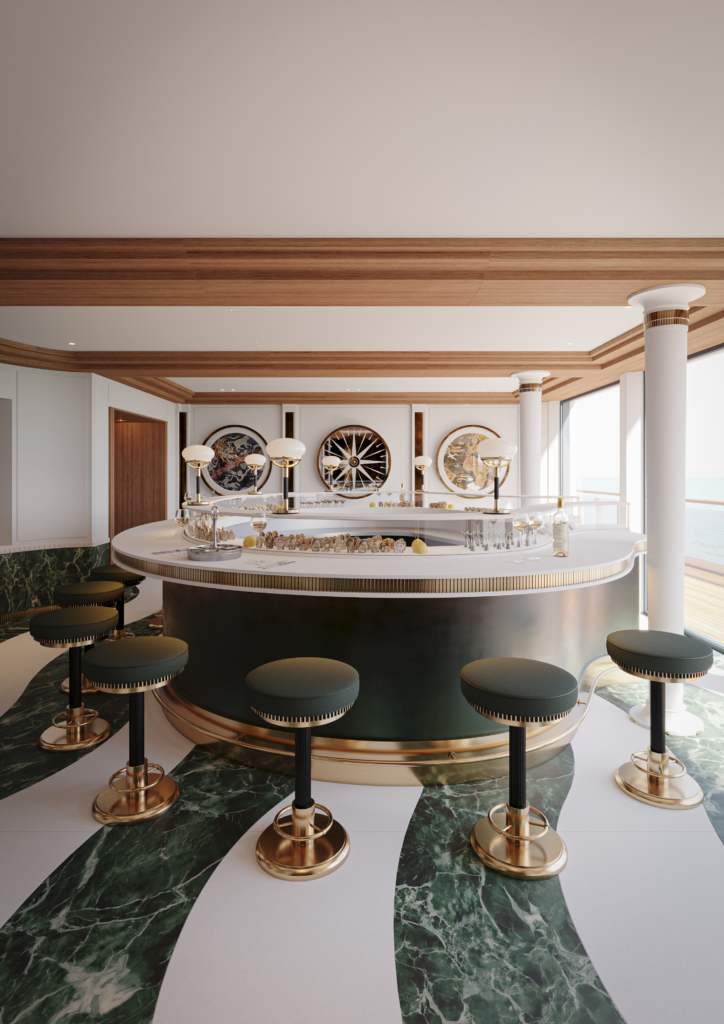 Most cruise ships are confined to docking in designated terminals – their sheer size procluding them from off-the-map destinations thus compounding tourism numbers in certain destinations like Amsterdam or Barcelona–
Most cruise ships are confined to docking in designated terminals – their sheer size procluding them from off-the-map destinations thus compounding tourism numbers in certain destinations like Amsterdam or Barcelona–
The Barcelona Port authorities did offer us a place which was next to the container cranes and beneath a massive Virgin cruise line – ships with around 14 decks. We said, we’re not going. We’re just not going. Our itineraries are built mainly around anchors. So approximately 60% of the time we’ll be anchored outside a port and we’ll use our Pascoe limousine tenders. We’ll be at anchorage and whenever we go into port, we’ll have dedicated terminals.
On an inclusive basis, every three days we’ll have an experience. That might be the privatisation of a villa. That may be a special dinner on the beach in the Caribbean.
And what about experiences exclusively available to Corinthian passengers?
There will be various opportunities. One example being the Palais Bulles, which was Pierre Cardin’s holiday home in Cannes: we can arrange a private dinner there. Or we’ll arrange a private dinner in the Roman theater in Taormina, or on the rooftop of the Guggenheim Museum.
And then the service on board: that’s another differentiator from cruise. We’re really targeting something that is closer to yachting in terms of profiles and culture. Like I said, we’ll be having guests who will be coming from our hotels and from our trains, so we should make them feel like they’re at home when they step aboard – there should be some kind of continuity. When you’re on a yacht, the crew only needs one day to know what you like or dislike. The second day they don’t even ask you a question, except to ask if you’d still like your eggs sunny-side up.
And finally, how about the offering for families. Will Orient Express Corinthian accommodate kids?
We've already had calls from people who want to come and we’ve responded positively. But out of principle we'll have just three or four weeks that are dedicated to kids. We have a playroom and there’ll be programming. On deck seven, suites can be combined, so you can imagine having one family in there with their own dining room.




